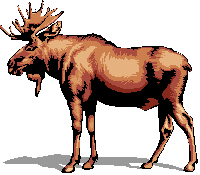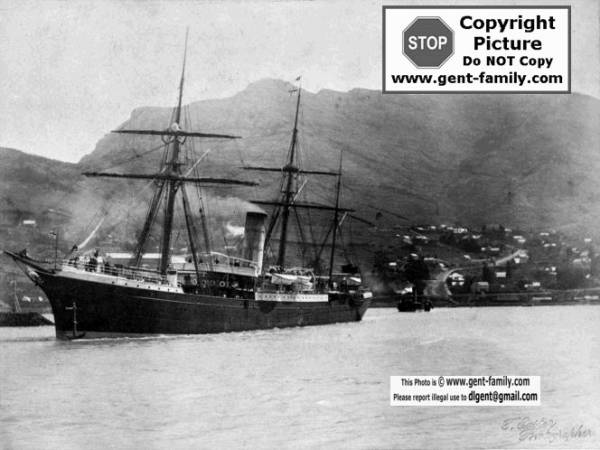New Zealand Moose
I like oddball stories and this is one of those for sure.

Jan 5, 1900, 14 Saskatchewan Moose were shipped to New Zealand.
They were loaded on the steamer Aorangi.
They were in charge of the Chief Factor McDonald of the Hudson Bay company, who collected the young moose.
The government of New Zealand asked for the moose.
The Hudson Bay Company were then asked to complete the job.
They captured the animals when they were small and were raised by hand to get them accustomed to the change in food.
10 died at sea during a storm, before they arrived at Honolulu, but 4 made the trip and were released.
10 more moose were shipped from Alberta, via Victoria, Jan 1 1910
These moose were also shipped on the Steamer Aorangi, on what was to be it's last trip to Victoria.
Ship left the Outer wharf in Victoria, shortly after 12 noon, Capt J. D. S. Phillips in charge.
Mr. Moorehouse, (Moorhouse?) a New Zealand Government agent, was in charge of the moose.
Since then it is like our Sasquatch for sightings.
In 2005 a biologist found a tuft of hair, in the Fiordland National Park, which proved by DNA to be Canadian Moose.
so I guess they are still there, amazing enough.
Photographs, documentaries etc are now available.

Steamship Aorgani
Easter, Theophilus, 1832-1913.
The steam ship “Aorangi”. Ref: PAColl-5408.
Alexander Turnbull Library, Wellington, New Zealand.
http://natlib.govt.nz/records/22756168
The steamer Aorangi was built for the New Zealand Shipping Co. in 1883 by John Elder and Co, in Glasgow, Scotland, for the London, New Zealand trade.
Aorgani meant “Cloud Piercer” in the Maori tongue
In 1897 it was sold to James Huddart and Co, Known as the Huddart-Parker line, and re-engineered for the Vancouver trade.
They quickly went out of business, and it was sold back to the New Zealand Shipping Co.
They continued trade with Vancouver, in conjunction with the Union Steamship Line.
It was sold in 1910 to the Union Steamship Line.
Steel, single screw steamship, 2755 tons gross.
389 ft long, 46 ft beam, depth 23.7 ft.
It had refrigeration equipment, and carried 1st, 2nd and 3rd class passengers, as well as freight.
in 1915 it was sold to the Imperial government for military purposes.
Scuttled on Orkney Islands in 1915.
It became a very well known ship on the Pacific.
©

